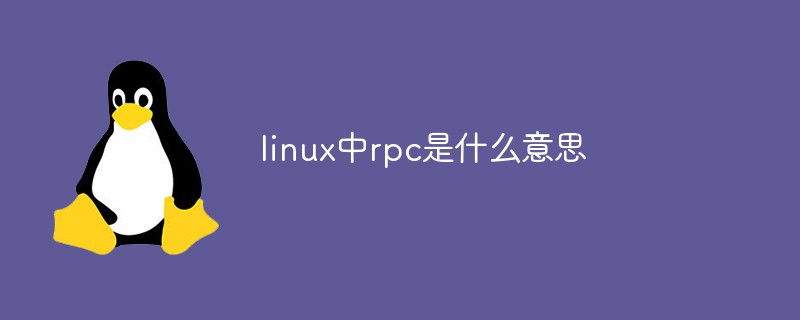 Backend Development
Backend Development PHP Tutorial
PHP Tutorial PHP Linux script operation example: realizing automated deployment
PHP Linux script operation example: realizing automated deployment
PHP Linux script operation example: realizing automated deployment
In recent years, with the rapid development of the software industry, deployment work has become increasingly important in the development process. In order to improve efficiency, many development teams have begun to adopt automated deployment to simplify the cumbersome deployment process. Among them, the script operation of PHP language in the Linux environment has become a common implementation method.
This article will introduce how to use PHP scripts to achieve automated deployment in a Linux environment, and provide some specific code examples.
- Basic Principle
The basic principle of automated deployment is to use scripts to complete various deployment tasks, such as code pulling, configuration file updates, dependency installation, etc. As a server-side scripting language, PHP language has strong file operation and system call capabilities, and is especially suitable in the Linux environment. - Code Example
The following is a simple PHP script example for automated deployment in a Linux environment:
<?php
// 定义部署路径
$deployPath = '/var/www/html';
// 定义仓库地址和分支信息
$repoUrl = 'git@github.com:username/repository.git';
$branch = 'master';
// 切换到部署路径
chdir($deployPath);
// 拉取最新代码
$cmd_pull = 'git pull ' . $repoUrl . ' ' . $branch;
exec($cmd_pull, $pull_output, $pull_result);
// 打印拉取结果
echo "拉取代码结果:
";
echo implode("
", $pull_output) . "
";
echo "拉取结果代码:{$pull_result}
";
// 更新配置文件或其他操作
// ...
// 安装依赖
$cmd_install = 'composer install';
exec($cmd_install, $install_output, $install_result);
// 打印安装结果
echo "安装依赖结果:
";
echo implode("
", $install_output) . "
";
echo "安装结果代码:{$install_result}
";
?>In this example, we first define the deployment Necessary parameters such as path ($deployPath), warehouse address and branch information ($repoUrl and $branch). Then, switch the current working directory to the deployment path through the chdir() function. Then, use the git pull command to pull the latest code, and execute the command through the exec() function and obtain the execution results. Finally, code operations for updating configuration files and installing dependencies can be added based on actual needs.
- Running environment configuration
In order to ensure that the script can run smoothly in the Linux environment, some running environment configuration is required:
-
Installation Git: In Linux systems, use the following command to install Git:
sudo apt-get update sudo apt-get install git
-
Install PHP: In Linux systems, use the following commands to install PHP:
sudo apt-get update sudo apt-get install php
- Configure SSH: If you need to pull code from a remote warehouse, you need to configure SSH password-free login. Please refer to relevant documents for specific methods.
- Summary
Through the above code examples, we can see that using PHP to achieve automated deployment in a Linux environment is very simple and effective. With PHP's powerful file operation and system call capabilities, we can realize various tasks in automated deployment by writing some simple scripts.
Of course, automated deployment is not limited to the above examples. It can perform more complex operations based on actual needs, such as updating the database, executing tests, etc. I hope that through the introduction of this article, readers can have a more comprehensive understanding of automated deployment of PHP scripts in the Linux environment.
The above is the detailed content of PHP Linux script operation example: realizing automated deployment. For more information, please follow other related articles on the PHP Chinese website!
 什么是linux设备节点Apr 18, 2022 pm 08:10 PM
什么是linux设备节点Apr 18, 2022 pm 08:10 PMlinux设备节点是应用程序和设备驱动程序沟通的一个桥梁;设备节点被创建在“/dev”,是连接内核与用户层的枢纽,相当于硬盘的inode一样的东西,记录了硬件设备的位置和信息。设备节点使用户可以与内核进行硬件的沟通,读写设备以及其他的操作。
 Linux中open和fopen的区别有哪些Apr 29, 2022 pm 06:57 PM
Linux中open和fopen的区别有哪些Apr 29, 2022 pm 06:57 PM区别:1、open是UNIX系统调用函数,而fopen是ANSIC标准中的C语言库函数;2、open的移植性没fopen好;3、fopen只能操纵普通正规文件,而open可以操作普通文件、网络套接字等;4、open无缓冲,fopen有缓冲。
 linux中什么叫端口映射May 09, 2022 pm 01:49 PM
linux中什么叫端口映射May 09, 2022 pm 01:49 PM端口映射又称端口转发,是指将外部主机的IP地址的端口映射到Intranet中的一台计算机,当用户访问外网IP的这个端口时,服务器自动将请求映射到对应局域网内部的机器上;可以通过使用动态或固定的公共网络IP路由ADSL宽带路由器来实现。
 linux中eof是什么May 07, 2022 pm 04:26 PM
linux中eof是什么May 07, 2022 pm 04:26 PM在linux中,eof是自定义终止符,是“END Of File”的缩写;因为是自定义的终止符,所以eof就不是固定的,可以随意的设置别名,linux中按“ctrl+d”就代表eof,eof一般会配合cat命令用于多行文本输出,指文件末尾。
 linux怎么判断pcre是否安装May 09, 2022 pm 04:14 PM
linux怎么判断pcre是否安装May 09, 2022 pm 04:14 PM在linux中,可以利用“rpm -qa pcre”命令判断pcre是否安装;rpm命令专门用于管理各项套件,使用该命令后,若结果中出现pcre的版本信息,则表示pcre已经安装,若没有出现版本信息,则表示没有安装pcre。
 什么是linux交叉编译Apr 29, 2022 pm 06:47 PM
什么是linux交叉编译Apr 29, 2022 pm 06:47 PM在linux中,交叉编译是指在一个平台上生成另一个平台上的可执行代码,即编译源代码的平台和执行源代码编译后程序的平台是两个不同的平台。使用交叉编译的原因:1、目标系统没有能力在其上进行本地编译;2、有能力进行源代码编译的平台与目标平台不同。
 linux怎么查询mac地址Apr 24, 2022 pm 08:01 PM
linux怎么查询mac地址Apr 24, 2022 pm 08:01 PMlinux查询mac地址的方法:1、打开系统,在桌面中点击鼠标右键,选择“打开终端”;2、在终端中,执行“ifconfig”命令,查看输出结果,在输出信息第四行中紧跟“ether”单词后的字符串就是mac地址。
 linux中rpc是什么意思May 07, 2022 pm 04:48 PM
linux中rpc是什么意思May 07, 2022 pm 04:48 PM在linux中,rpc是远程过程调用的意思,是Reomote Procedure Call的缩写,特指一种隐藏了过程调用时实际通信细节的IPC方法;linux中通过RPC可以充分利用非共享内存的多处理器环境,提高系统资源的利用率。


Hot AI Tools

Undresser.AI Undress
AI-powered app for creating realistic nude photos

AI Clothes Remover
Online AI tool for removing clothes from photos.

Undress AI Tool
Undress images for free

Clothoff.io
AI clothes remover

AI Hentai Generator
Generate AI Hentai for free.

Hot Article

Hot Tools

Notepad++7.3.1
Easy-to-use and free code editor

MantisBT
Mantis is an easy-to-deploy web-based defect tracking tool designed to aid in product defect tracking. It requires PHP, MySQL and a web server. Check out our demo and hosting services.

DVWA
Damn Vulnerable Web App (DVWA) is a PHP/MySQL web application that is very vulnerable. Its main goals are to be an aid for security professionals to test their skills and tools in a legal environment, to help web developers better understand the process of securing web applications, and to help teachers/students teach/learn in a classroom environment Web application security. The goal of DVWA is to practice some of the most common web vulnerabilities through a simple and straightforward interface, with varying degrees of difficulty. Please note that this software

EditPlus Chinese cracked version
Small size, syntax highlighting, does not support code prompt function

SublimeText3 Linux new version
SublimeText3 Linux latest version





